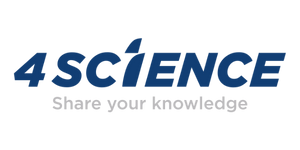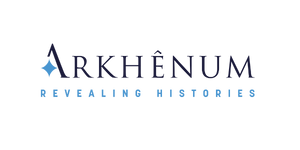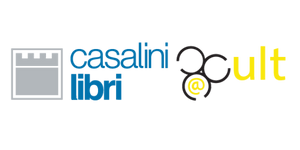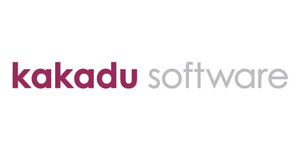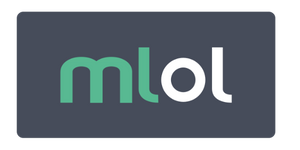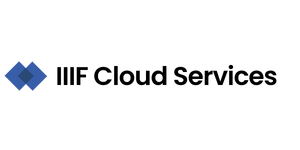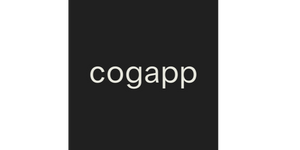2023 IIIF Annual Conference Workshops
The outline schedule of the conference workshops is available below.
Register
-
Please register for the conference and for the optional workshops below using Conftool. Payment must be submitted following your registration via Paypal using a credit card number, or via check. You can register here.
- Registration for the IIIF showcase is free.
- Costs for the conference will be €480 for a general ticket, €230 for a consortium members ticket.
Sponsors
The IIIF Annual Conference is generously supported by the following Conference Sponsors:
Gold Sponsors
Silver Sponsors
Workshops
| Time | Session | Speaker(s) | |
|---|---|---|---|
| 8:00 - 9:00 | Check-in | ||
| 09:00 - 12:00 | Getting started with ARK persistable identifiers | John Kunze, Donny Winston | |
| 09:00 - 12:00 | IIIF in crowdsourcing and citizen science practices: A workshop on the user needs and an outline of use cases with Madoc | Lise Foket, Rein Debrulle | |
| 09:30 - 11:30 | IIIF Commons Workshop | Glen Robson, Adam Arling, Mat Jordan, Ed Silverton, Stephen Fraser | |
| 12:00 - 13:30 | Lunch break | ||
| 1:30 - 4:30 | IIIF 3D - Technical Specification Group Workshop | Ronald S. Haynes, Edward Silverton, Julie Winchester | |
| 01:30 - 03:30 | IIIF and DSpace 7: integrating tools for exploring Digital Cultural Heritage | Claudio Cortese, Andrea Bollini | |
| 01:30 - 05:30 | Experimental IIIF kitchen using Archipelago: Community Cookbooks, family recipes and serendipitous manifest baking using a fully stocked kitchen and your own fresh ingredients | Allison Sherrick, Diego Alberto Pino Navarro | |
Locations
Questions?
Reach out to us at staff@iiif.io.
Abstracts
Getting started with ARK persistable identifiers
In this 3-hour workshop we will introduce you to ARKs (Archival Resource Keys), which can serve as persistent identifiers, or stable, trusted references for information objects (eg, image URLs that don’t return 404 Page Not Found errors). In more than two decades, 8.2 billion ARKs have been created by over 1000 organizations — libraries, data centers, archives, museums, publishers, government agencies, and vendors.
We will cover:
● Why ARKs -- non-paywalled, decentralized, flexible
● Use cases -- Smithsonian, French National Library, Internet Archive
● Metadata for early and ongoing object development
● How to get started -- one form
● Minting and assigning ARK identifiers
● Resolvers, resolution, redirection
● Object types -- digital, physical, conceptual
● Persistence considerations
● Available tools
All are welcome. No technical experience required, but there will be an optional technical breakout session.
IIIF in crowdsourcing and citizen science practices: A workshop on the user needs and an outline of use cases with Madoc
1a. Crowdsourcing and IIIF
In the first part of the workshop, we will talk about crowdsourcing using IIIF, specifically in the cultural and natural heritage sector. In this workshop, we will centralize the various user and stakeholder types (e.g. ‘the crowd’, scientific audiences, cultural heritage sector, academics...), and what exactly their requirements and needs are for crowdsourcing (with IIIF). To do so, we will report on user research undertaken by the Flemish Art Collection in Flanders (VKC), which conducted user surveys to try and determine do’s and don’ts for (IIIF) crowdsourcing, as well as our own experiences with use cases for crowdsourcing. We will talk about the context and outcomes of this user research, offer some visualizations through user personas, and discuss the recurring needs and requirements.
Following an outline of the user research, we will take on a more interactive approach in the workshop. Through some interactive exercises, we will facilitate a brainstorm on how IIIF can be a solution for these user needs, and what future requirements are needed to meet them. We will reflect on how crowdsourcing specialists and volunteers could benefit from existing solutions, software and/or platforms that perhaps already meet some of these user needs, and think about newer features. The goal of this workshop is to bring together a variety of parties interested in crowdsourcing with IIIF, to foster an international community.
1b. Madoc as a platform for crowdsourcing: Needs, Requirements and Roadmap
In the second part of the workshop, we will start with an introduction to the platform Madoc, by demonstrating some specific crowdsourcing use cases by various institutions. Madoc is an open source platform for the enrichment of IIIF digital objects. We will provide a comprehensive understanding of Madoc for attendees and how it can be applied to various annotation and crowdsourcing use cases. We will also discuss some of the viewpoints of why certain features were requested, based on use cases and experiences of GhentCDH and National Library of Wales. Through hands-on exercises, we will allow attendees to test some of the features of Madoc, particularly the display, enrichment (e.g. annotations, translations, transcriptions, metadata harvesting, ...) and curation of IIIF digital collections. The next step is then to apply some of the findings of the first part of the workshop to the platform, and particularly reflect on current features of Madoc. Next, we will reflect in a group on (1) how current features already are solutions for IIIF and crowdsourcing, as well as (2) potential next requirements for the platform to cater to existing common needs. This session will facilitate further development and direction of both the Madoc community and platform. We will further refine the workshop in the upcoming months to meet the needs of existing users and other known interested parties.
Workshop Itinerary
Part 1 - IIIF and Crowdsourcing (1.5 hours)
● Outlining user requirements for IIIF and crowdsourcing
● Brainstorming on potential IIIF solutions for these requirements
15 min break
Part 2 - Madoc Use Cases and Community-building (1.5 hours)
Reflect on Madoc’s core capabilities as a IIIF crowdsourcing solution through example projects, demonstrations and experiences from existing users
● Get hands-on experience of Madoc using some simple exercises with a sandbox
environment
● Brainstorming common issues, requirements and missing features
● Prioritisation and product roadmapping exercise
● Discuss next steps for the Madoc community
IIIF Commons Workshop
This will be a hands on workshop looking at the different tools that are available in the IIIF Commons Github organisation. It will include special focus on the Thumbnail panel which was developed early this year.
IIIF 3D - Technical Specification Group Workshop
Following the successful impromptu workshop arranged by 3D TSG members present at the 2022 conference in Boston, the group agreed to plan additional in-person workshops to continue the technical work of the group.
This work is outlined in our Charter, which includes a Road Map, and has been developing during the monthly calls, including a focus on 6 core user stories and essential comparisons of the input of the same model and annotations in key 3D viewers.
If you are interested in finding out more about the group, as well as the early drafting efforts for the next Presentation API, and want to contribute to its work, please do join us!
IIIF and DSpace 7: integrating tools for exploring Digital Cultural Heritage
In the last years IIIF became the “de facto” standard for presenting, navigating and delivering digital images on the web all over the world. It defines several APIs for providing a standard method for describing, analysing and sharing images over the web, as well as "presentation-based metadata" about structured sequences of images. However, images and, in particular, cultural heritage images, to be fully analysed, interpreted and enjoyed should be inserted in a “virtual ecosystem” in which they can be related with entities such as people, places, events, fonds, etc., according to different visions and interpretations.
Therefore, since 2017, we have been working at integrating IIIF in a Digital Library environment based on DSpace, the most used Open source Digital Asset Management System, developing a dedicated addon (starting from version 5), easily integrated with a set of external Image Servers, such as Cantaloupe or Digilib, and at extending DSpace data model as well, to structure contextual relationships among cultural heritage entities at different levels.
After DSpace 7 release, we worked with the community at integrating IIIF support in the official DSpace codebase. Now the DSpace REST API implements the IIIF Presentation API version 2.1.1, the IIIF Image API version 2.1.1, and the IIIF Search API version 1.0 (experimental). Any IIIF compliant image server can be integrated. The DSpace Angular frontend uses the Mirador 3.0 viewer.
However, Digital Library requirements are getting complex and complex. Therefore, to fulfil the needs of the cultural heritage domain, we enhanced our solutions based on DSpace 7, developing two further add-ons to integrate and enrich the “IIIF experience” within DSpace: the Document Viewer (for visualizing PDF files within Mirador) and the OCR module (for extracting text from images and indexing it).
Integrating IIIF and DSpace 7 and enriching the platform with new features, it has been possible to go beyond the traditional boundaries of the Digital libraries, structuring a complex system of relationships, building new narratives thanks to interdisciplinarity and the coexistence of different domains.
The proposed 2 hours workshop, addressed to librarians, archivists, historians, archaeologists, researchers and to all those who want to build their own digital library with DSpace 7 and IIIF, will introduce the attendees to the IIIF integration in DSpace both from the backend and from the frontend side.
We will analyze and share our approach and standard workflows for managing cultural heritage documents in DSpace using IIIF, starting with images submission and describing the operations required to make images available to the Mirador Image Viewer, the ones for extracting the text via OCR and for visualizing PDFs through the Image Viewer. Moreover, we will show how to relate items to each other, in order to build a complex system of relationships between entities, to be explored through network graphs.
Experimental IIIF kitchen using Archipelago: Community Cookbooks, family recipes and serendipitous manifest baking using a fully stocked kitchen and your own fresh ingredients
Archipelago Commons is a stable and well maintained OSS repository system that integrates user facing IIIF capabilities all across its architecture and stack. From Dynamic Manifest generation (both 2.1 and 3), W3C Annotations, OCR extraction and discovery, direct access to descriptive metadata with rich LoD and side by side technical metadata, configurable discovery to fully configured and ready to use IIIF Image API server with extensions for multiple types of Media. The system also provides, out of the box, a selection of the most popular IIIF capable media viewers in up to date versions and variations.
These features and tools provide a great opportunity for community members that are learning the IIIF spec(s) and want to experiment with these in a safe space without having to manually deploy and configure individual tools, lowering the entry barrier to IIIF. This also allows more advanced users to bring their own assets, media, needs, questions, metadata, even in different languages, and evaluate (or dream) IIIF implementations under their own individual or institutional realities, constraints and contexts.
During this 4 hour workshop participants will learn how to use and customize a curated selection of adapted IIIF Cookbook examples, in specific those targeting the IIIF Presentation and image API version 3, using a locally deployable and dockerized Archipelago Commons configured to serve as a learning ground. Users will be encouraged to bring their own assets and Metadata, work collaboratively with their peers, and to critically evaluate how IIIF can leverage their collections.
Participants will be provided with a simple and fully automated local deployment upfront, written 101 documentation, example Digital Objects and a guided set of tasks to execute during the first 2 hours of the workshop. Tricks of trade, Media and File Formats, specs and their implementations in Viewers will be discussed. The second part will provide participants with space to experiment on their own, by testing, adapting and learning how to build a fully customized IIIF presentation Manifest to fulfill a specific need while collaborating with their peers. The organizers will be supporting each participant interactively. Focus will be put on providing a respectful and inclusive environment following the IIIF Community code of conduct.
Even if participants already run their own platform of choice(s) and/or do not intent to use Archipelago in production at all, the unique approach of having a single system that can cover most of the IIIF specifications and provides an easy way to test the amazing IIIF community developed Cookbook recipes with their own and real Digital Objects and Media, presenters will endeavor to lead participants into a wider discussion about IIIF specifications best practices, File format choices and Viewer selection. This workshop will be principally geared towards a general audience.
